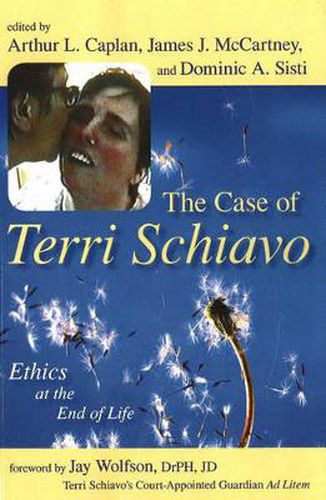Readings Newsletter
Become a Readings Member to make your shopping experience even easier.
Sign in or sign up for free!
You’re not far away from qualifying for FREE standard shipping within Australia
You’ve qualified for FREE standard shipping within Australia
The cart is loading…






After the Nancy Cruzan case was decided by the Supreme Court in 1990, and ultimately resolved by the Courts of the State of Missouri, the decision to withhold or withdraw life-prolonging nutrition and hydration appeared to many to be as non-controversial as decisions to refuse respirators or dialysis. Even the Catholic Church held that, although there should be a presumption in favour of providing nutrition and hydration, the patient or the patient’s surrogate could overrule this presumption, if either believed the treatment was disproportionate or burdensome. The Schiavo case changed all that. Although the decision to remove Terri Schiavo’s nutrition and hydration was made by her husband - her legal surrogate - based on his wife’s belief that such treatment was disproportionate, Schiavo’s immediate family protested so much that the case took years to resolve. It eventually involved all branches of government at both the state and federal levels. The ethical dilemmas that such cases pose continue to stir great controversy. This in-depth examination of these dilemmas provides information and documentation from many perspectives. For anyone wishing an in-depth understanding of these complex ethical issues, issues many of us will have to confront in our own families, this volume is indispensable.
$9.00 standard shipping within Australia
FREE standard shipping within Australia for orders over $100.00
Express & International shipping calculated at checkout
After the Nancy Cruzan case was decided by the Supreme Court in 1990, and ultimately resolved by the Courts of the State of Missouri, the decision to withhold or withdraw life-prolonging nutrition and hydration appeared to many to be as non-controversial as decisions to refuse respirators or dialysis. Even the Catholic Church held that, although there should be a presumption in favour of providing nutrition and hydration, the patient or the patient’s surrogate could overrule this presumption, if either believed the treatment was disproportionate or burdensome. The Schiavo case changed all that. Although the decision to remove Terri Schiavo’s nutrition and hydration was made by her husband - her legal surrogate - based on his wife’s belief that such treatment was disproportionate, Schiavo’s immediate family protested so much that the case took years to resolve. It eventually involved all branches of government at both the state and federal levels. The ethical dilemmas that such cases pose continue to stir great controversy. This in-depth examination of these dilemmas provides information and documentation from many perspectives. For anyone wishing an in-depth understanding of these complex ethical issues, issues many of us will have to confront in our own families, this volume is indispensable.